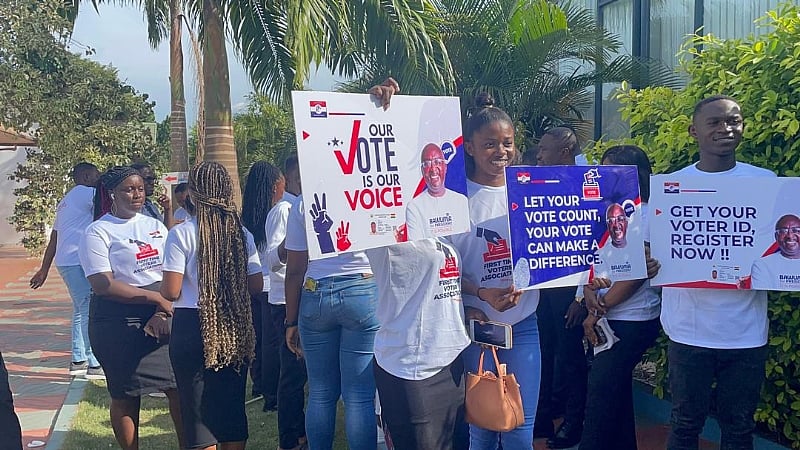In the lead-up to the 2024 elections in Ghana, graduates of the Free Senior High School (SHS) policy, implemented by the New Patriotic Party (NPP), are rallying fellow beneficiaries to vote in favor of the NPP. These graduates firmly believe that supporting any other political party would be an error, particularly given the substantial investments made by the NPP that have directly benefited millions of young Ghanaians. The students who have completed their education under this initiative have voiced their strong appreciation for the NPP government, attributing their access to free education as a transformative experience, which they believe warrants reciprocation in the form of votes.
In a recent interview, Elorm Owusu, one of the beneficiaries, passionately expressed gratitude towards the NPP, crediting the Free SHS policy for her opportunity to pursue higher education. Owusu stated her unwavering commitment to voting for the NPP, urging her peers to recognize the value of the program that allowed her and many others to complete secondary education without financial constraints. Her sentiment reflects a widespread acknowledgment among graduates that the policy has had a life-changing impact on their educational and career prospects, fostering a loyalty to the party responsible for its implementation.
Kwabena Gyamfi, another graduate, reinforced the notion that the NPP is the best guardian of the Free SHS policy. He articulated his belief that no other political party would prioritize or protect this educational initiative as the NPP has. Gyamfi’s assertion highlights a larger narrative among graduates: the idea that maintaining the status quo is vital for the continuation of educational benefits provided through the Free SHS program. This conviction drives their call to action, encouraging fellow youths to engage actively in the upcoming elections to secure their educational legacy.
Additionally, parents and guardians of the graduates have echoed this sentiment, regarding the Free SHS policy as one of the most significant social intervention programs in Ghanaian history. Many families have experienced a considerable alleviation of financial burdens due to the elimination of secondary school fees, allowing more students to pursue education that was previously out of reach. The support from the parents serves to bolster the graduates’ advocacy, reinforcing a collective commitment within communities to rally behind the NPP.
The discourse among graduates and their families indicates a deep emotional connection to the educational reforms initiated by the NPP, positioning the upcoming elections as pivotal for the future of the Free SHS policy. As beneficiaries reflect on their improved life circumstances, the message is clear: their votes are not merely a political choice but a form of gratitude and affirmation for the educational opportunities they have received. The overarching narrative culminates in a strong urged connection between political support for the NPP and the continuation of policies that foster educational access for future generations.
In conclusion, the calls for unity and support for the NPP by graduates of the Free SHS policy highlight a significant political landscape in Ghana. The graduates, supported by parents, view the NPP as the custodian of educational progress and believe that their votes in the 2024 elections will serve as an endorsement of the policy that has greatly benefited them. As these voices unite, they emphasize the importance of preserving educational initiatives that have the potential to shape the lives of countless Ghanaians, underscoring the profound impact of governmental policies on the youth and the nation at large.














